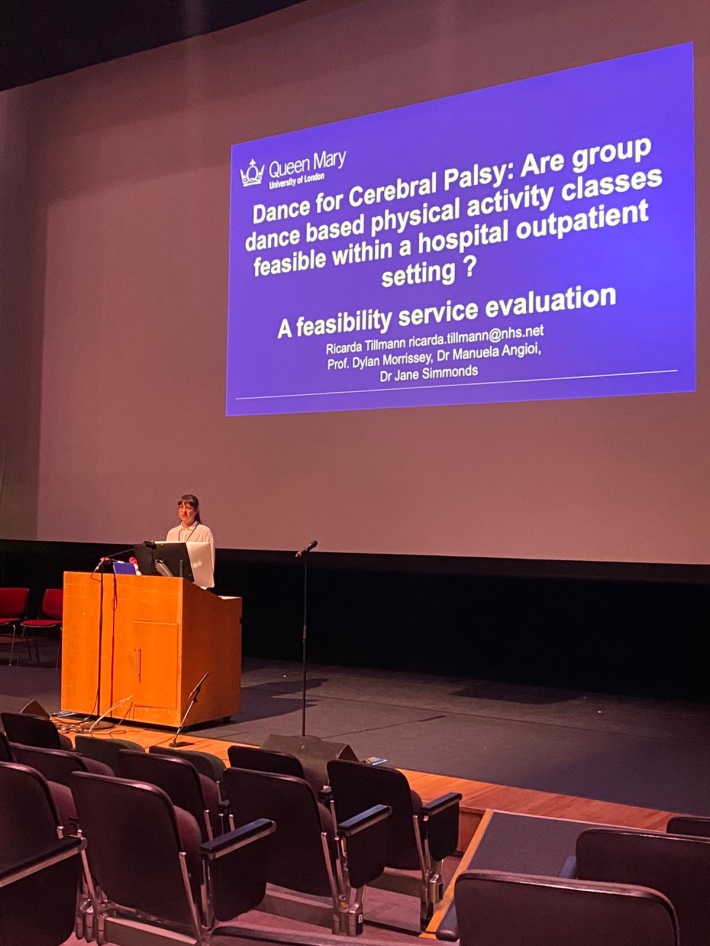Award winning research on helping children with cerebral palsy dance

Ricarda Tillmann, paediatric neuro-orthopaedic physiotherapist at The Royal London Hospital, recently won the Linda and William Hamilton Annual Dance Wellness Symposium award for her work on dance as a physical activity for children with cerebral palsy. We caught up with her to discuss her work and award.

What is your research about?
"My research looked into the positive impacts of dance in children with cerebral palsy.
The research evaluated charity run dance classes in collaboration with Flamingo Chicks dance charity. All children and young people who participated received the dance classes as part of their orthopaedic treatment. We measured changes with the young people’s progression in movement and held interviews with them and their parents. We were able to share the positive changes in their child’s movement. The analysis from these interviews will inform how we design future classes."
How did you feel when you found out you won the award?
"I was surprised and shocked that my work received such recognition, but most importantly, it taught me a valuable lesson, in seeing the children as dancers not as patients."
What were your thoughts on sharing this experience with the parents?
"It was an eye-opening experience for me. As we progressed, parents would share more of their experiences and were delighted when others would open up about their similar experiences – such as when their children started walking. It was lovely seeing parents head for a coffee together, with people who understood their experience, while their children danced. Some parents did not think their child could move the way they went on to or had not seen their child do so in a long time."
How did you feel knowing you were able to help these families?
"I felt grateful to be able to share this journey and opportunity that first and foremost is fun. Getting to know the families was a lovely change to the 30-minute clinic appointments they were used to. This also encouraged open discussion and a degree of honesty that carried on into my clinical work."
One parent noted:
"When I take her for a walk, she would want to use the wheelchair right away. However, at the dance class she can move and run and be active for the entire time!"
What were your thoughts when you ran your first class?
"What if nobody likes it? But that fear stopped quite soon as the kids started to come in. It also helped that Ella, our dance teacher, was so engaging that none of the kids managed to stay apprehensive for very long. After the summer dance intensive there were still emails coming in from parents asking to be placed on waitlists for potential future classes."
What was your favourite moment when running the classes and conducting your research?
"My favourite moment was during the Festival of Communities, where we co-created with the children, young people and dance teacher a workshop. I was very proud of the young people I worked with. They led the workshop with such positivity and power that the workshop was a grand success, and a lovely way to connect with our bodies and their abilities."
What are the next steps for your research and in continuing to help these children and their families?
"Going forward I am still collaborating with Tower Hamlets who funded the summer intensive, and we are looking at future opportunities for holiday sessions. In the future, I hope that more children and young people will have access to an activity they really like and can connect with."

Art by Mary Lemley-Miller of the children with cerebral palsy dancing at the class.
